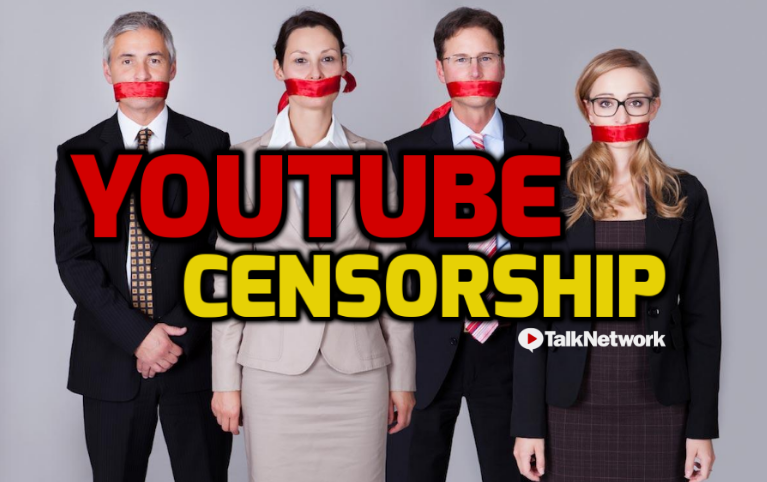PragerU vs YouTube case has enormous implications for the future of online FREE speech
02/14/2018 / By JD Heyes

As an Internet-based publication, we certainly believe it is important — crucial even — that the online world remains completely free and open, immune to censorship in any form or fashion.
That’s why we’re extremely supportive of a legal effort aimed at busting up the Web’s biggest information monopoly after a series of very credible reports have documented how that company — Alphabet Corp.’s Google — has been attempting to control the flow of information that browsers can (and can’t) see.
“Google dominates Internet search with over 75 percent of the market. If you disappear on Google, your ability to voice your opinion disappears too. You will be silenced,” says StopOnlineCensorship.com, a legal effort sponsored by PragerU.com which has seen more than 40 of its educational videos suppressed by Google-owned YouTube.
The videos “have been placed in ‘restricted mode’ making it difficult or impossible for many young people to access the videos — simply because Google doesn’t agree with the point of view presented,” the site noted further.
“This is not just about PragerU being silenced. It’s about another point of view that’s being silenced by Google and YouTube,” the site continued. “Tomorrow it could be your point of view that is being silenced.”
As further reported by The Gateway Pundit, in 2016 The Wall Street Journal brought attention to the PragerU censorship, but after the story was picked up by a few outlets, “the entire case seemed to disappear for a few years.” (Related: GOOGLE CENSORSHIP BOMBSHELL: Supposed Natural News “violation” of Google webmaster rules also found running on Google’s own Blogspot network!)
But not really; “it rages on and should absolutely not be ignored.”
In the October 2016 report, the WSJ noted:
Tech giants like Google and Facebook always deny that their platforms favor some viewpoints over others, but then they don’t do much to avoid looking censorious. This week a conservative radio host and author is wondering why YouTube classifies his educational web clips as “potentially objectionable” material.
But more than 15 videos are “restricted” on YouTube, a development PragerU announced this month. This means the clips don’t show up for those who have turned on filtering—say, a parent shielding their children from explicit videos. A YouTube spokesperson told us that the setting is optional and “based on algorithms that look at a number of factors, including community flagging on videos.” Yet it’s easy to imagine a flood of users reporting a political video—microagressed college students have a lot of free time—and limiting a viewpoint’s audience.
PragerU produces short videos on a range of subjects “important to understanding American values” that range from the motivations of the Islamic State to the skyrocketing cost of a higher education. The channel has nearly 1.24 million followers and the videos have been viewed hundreds of millions of times. They mostly include an expert guest and background animation to make particular points.
Some recent subjects include, “Can Climate Models Predict Climate Change?,” “Trophies are for Winning,” “The Inconvenient Truth about the Republican Party,” and “Everyone Should Stand for the National Anthem.”
How controversial!
Granted, as a free enterprise, YouTube and Google have a right to make their own rules. But limiting content or practicing any form of censorship on any level undercuts their pledge to be platforms for “free expression,” which of course does not stop and start with Alt-Left Marxist points of view. And that seems to be the basis of the PragerU legal effort to “end the censorship of conservative ideas by the world’s largest information company.”
“If we don’t win this fight, there’s no telling where — or if — this online censorship will stop,” says a fundraising message from PragerU, which adds that the organization has already assembled an “all-star legal team” in its lawsuit against Google.
If you value an open Internet and freedom of speech, you might consider donating to the PragerU effort at StopOnlineCensorship.com. I did.
J.D. Heyes is also editor-in-chief of The National Sentinel.
Sources include:
Tagged Under: Censorship, computing, conservatives, Dennis Prager, evil, Glitch, Google, lawsuit, oppression, pragerU, search engine, tech giants, tech tyranny, Tyranny, YouTube
RECENT NEWS & ARTICLES
COPYRIGHT © 2017 COMPUTING NEWS




















